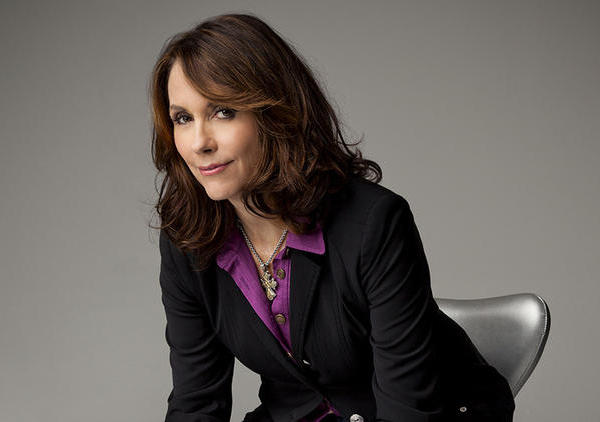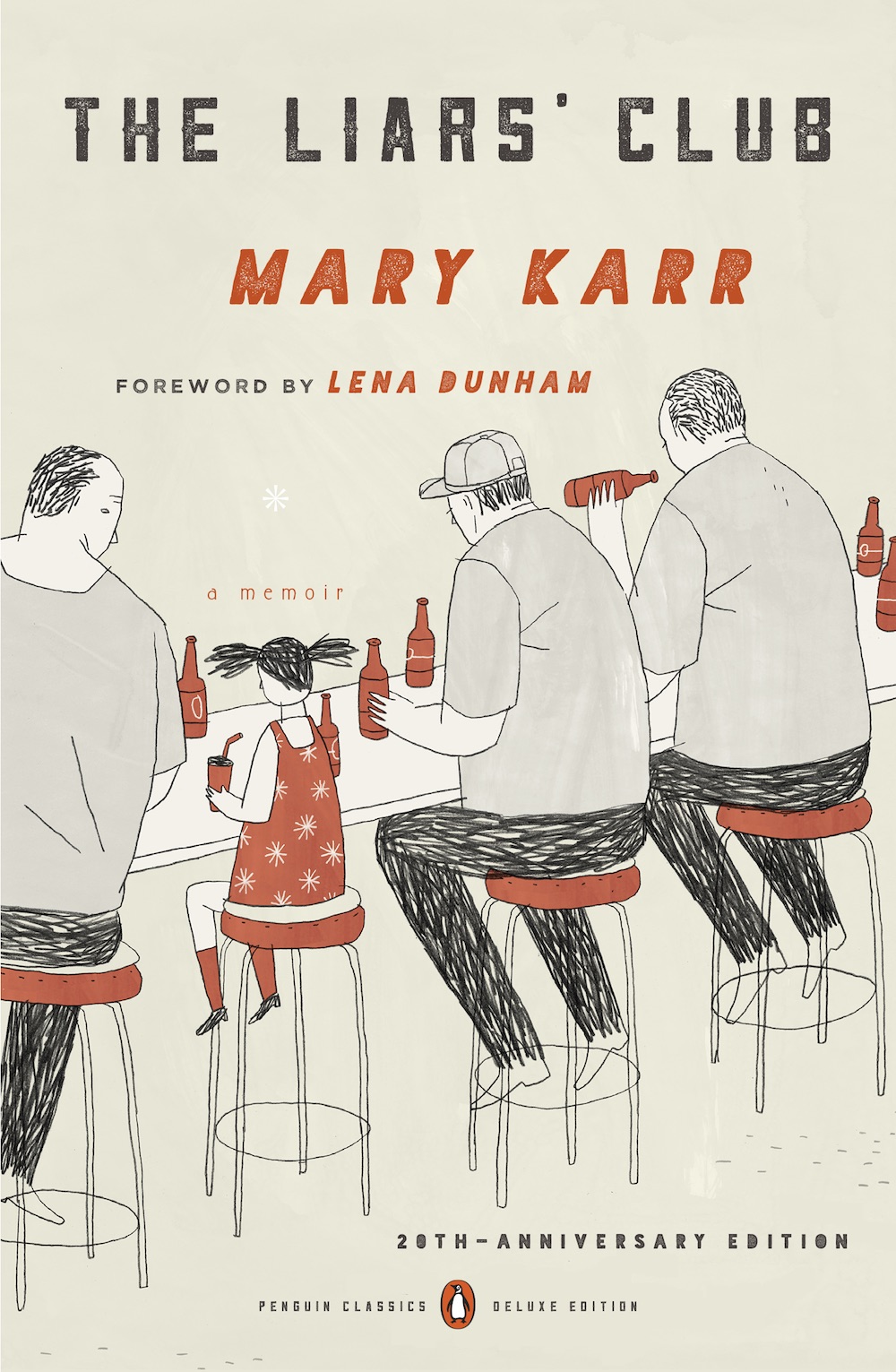【the problem of eroticizing sexual assault in media】
The the problem of eroticizing sexual assault in mediaTruth Keeps You Young
Books
Mary Karr’s The Liars’ Club turns twenty.

Mary Karr. Photo © Deborah Feingold
The first time I met Mary Karr I was, quite frankly, stunned. She was not what I had expected, not that I knew what to expect. I had read all her books, was familiar with the basics of her biography—including any gossip I could find, which is scant in the literary world, even when it comes to best-selling and notoriously dynamic authors—and had even seen her author photo, so I am not sure what came as such a shock to me except for something I might nebulously refer to as her “essence.”
I was standing in the middle of a party, lost, anxious, and sweaty in a slew of people who would all qualify as name-drops among certain bookish weirdos, when I received a firm tap on the shoulder. I spun around to find a petite brunette smiling about six inches too close to my face, if you’re following traditional social protocols. “I’m Mary Karr and I love you, honey.”
My reaction resembled what might once have been referred to as “the vapors.” I dizzily drunk in her words, her spirit and—despite my non-desire to define female authors by their looks—her beauty. It wasn’t that I didn’t expect her to be beautiful but, familiar as I was with the after-school-special–level challenges of her childhood and its reverberations into her adult life, I might also have expected someone a bit more worn. Reddened, perhaps? Burnt by hot Texan sun and experience? Yet there she was, buoyant and glowing like a twelve-year-old on the playground: “Wanna be friends?”
Within ten minutes we were happily documenting our interaction with, to use the parlance of our times, a selfie. “Tits up, ho!” Mary advised as she pressed the button.
I could only conclude that telling the truth keeps you young.
And for all those who have made a club of loving The Liars’ Cluband its sister books, we know that Mary Karr has not just made telling the truth her stock and trade. She has made it her art. I am sure some thesis has already noted the brilliance and irony of placing the word “liar” in the title of a book that speaks such aggressive and incessant truths. As Karr describes her childhood, near comic in its unrelenting tragedy, she sends an essential message: not only will the truth set youfree, it will set a course for others to do the same.
It would not surprise me if 73 percent of the memoirs written in the last twenty years were the result of passionate Liars’ Clubreaders thinking, Hey, I can do that. After all, there is no end to the macabre stories of childhood you can hear if you just perk your ears up: in the bodega, in the bar, in any twelve-step meeting, in any place at all. The tradition was once to keep those personal histories sealed tight, the way Karr’s unforgettable mother chose to until she became a sexagenarian. But Karr’s refusal to bottle herself up, her refusal to lie, lets us know that era is over. Henceforth, the light will pour in.
Therefore, it doesn’t surprise me that wherever Mary goes, tears are poured in her lap and she hears the gothic truth about the lives of myriad people she has never met, will likely never meet again. She may not have asked for it, but her writing makes it clear that she’s strong enough to take it on.
But the trouble with The Liars’ Clubis just how easy Mary makes it look. She is a poet, and so she has a poet’s ease of language, slapping certain words where they oughtn’t traditionally be and creating brand spanking new uses for them. Mary is a natural comedian, with the timing of a stand-up and the vigor of a vaudeville queen. And Mary is insightful beyond measure, recalling childhood with the clear-eyed generosity of someone looking down from a possible heaven. Therefore, her truthful book is a beautiful deception: she makes it look easy to do what is hardest, and that is to tell your own story and have it be heard. Mary’s family couldn’t hide their most sacred business from their neighbors. Now Mary doesn’t want to. Neither do we.
And I know for sure this cult of Mary has yielded some spectacular results, not just in literature but in actual lives. For a certain group of twenty-something women, consumption of, and passion for, The Liars’ Clubis both a rite of passage and a mode of self-identification. The expression over-sharing(of which I am not so fond, as it seems gendered and Internet-y) is made for the girls, the people, who have read Mary and taken her cue. She had allowed for the release of complex feelings, the use of unorthodox language, the poetry of pain to become part of young female friendships. Even those yet to read the book are benefiting from its reverberations.
Before my great-aunt died, she wrote a memoir, ostensibly to let our family know just how much had changed in the world since her birth in 1905 but actually to reveal the rotten truth of being a young female person in a town built for boys, with parents who hid the haunting facts of their reality from her. My aunt’s words were plain and dry, with only a glint of the humor that defined her when you sat across from her in a chair by the dock. When I read the book, printed at Kinko’s and shoddily bound, I thought: She is Mary without the words. She is Mary without the weapons. We are lucky that Mary had the words to unlock her truth, the words to make it sing, the weapons of precision and skill, because her feat allows other stories to sing, too. They are given validity and shine. We look around with new eyes at the forgotten, the abused, and the quietly unstoppable. I am lucky I was eight when this book was published. I am lucky I grew up in a world where it colored people’s reactions to personal stories, femalestories. We all are.
Because Liars’ Clubis more than an account of a tattered childhood and one brave and brilliant woman’s attempt to use it rather than deny it. This book is an aggressive tap on the shoulder in a crowded room, a smiling funny face asking its readers, Wanna be friends?
 Lena Dunham is the creator of the critically acclaimed HBO series Girlsand the author of the New York Timesbest-selling essay collection Not That Kind of Girl.A frequent contributor to The New Yorker, she lives in Brooklyn and Los Angeles.
Lena Dunham is the creator of the critically acclaimed HBO series Girlsand the author of the New York Timesbest-selling essay collection Not That Kind of Girl.A frequent contributor to The New Yorker, she lives in Brooklyn and Los Angeles.
This essay appears as the foreword to the twentieth-anniversary edition of The Liars’ Club, out this week from Penguin Classics. © 2015 Lena Dunham. Reprinted with permission.
Search
Categories
Latest Posts
Save 50% on a Blink video doorbell and camera bundle
2025-06-27 09:06Colin Kaepernick, Snoop Dogg, and more react to Eminem's heated anti
2025-06-27 09:02Popular Posts
JD Vance calls dating apps 'destructive'
2025-06-27 09:11In Australia, sometimes you've got to pick a shark out of a pool
2025-06-27 08:16It’s hard not to stare at these slick new electric sports cars
2025-06-27 06:56Featured Posts
'The Office' stars reminisce on the show's Second Life storyline
2025-06-27 07:47Donald Trump challenged Rex Tillerson to an IQ test
2025-06-27 07:21An Android User's Perspective: Two Weeks with the iPhone 6s, Part 1
2025-06-27 07:07Popular Articles
How to quit social media: This Gen Z
2025-06-27 09:12'To All the Boys': How the Coveys' costumes reflect the characters
2025-06-27 08:41Nick Jonas will do double
2025-06-27 08:30Apple updates headphones emoji to look like AirPods Max in iOS 14.5
2025-06-27 07:54Why Game Developers Keep Getting Laid Off
2025-06-27 06:35Newsletter
Subscribe to our newsletter for the latest updates.
Comments (991)
Wisdom Information Network
'The Traitors' Season 3's latest banishment has me fuming
2025-06-27 09:04Exploration Information Network
This delightful labrador has been hired as this hotel's dog concierge
2025-06-27 08:44Elegant Information Network
Sam Smith just donated a huge chunk of money to the Australian marriage equality campaign
2025-06-27 08:27Warmth Information Network
6 savvy time management extensions for Chrome
2025-06-27 07:24Micro Video Information Network
CES 2025: Hands
2025-06-27 06:38